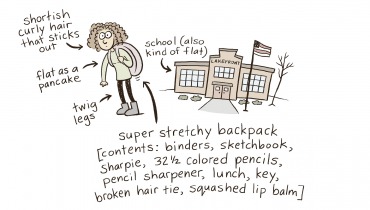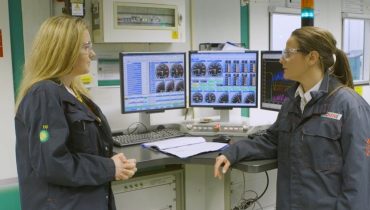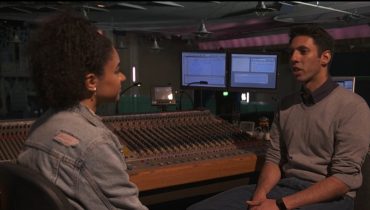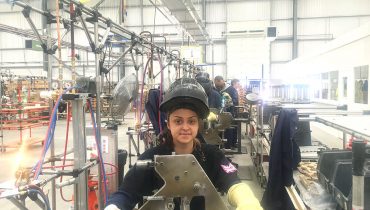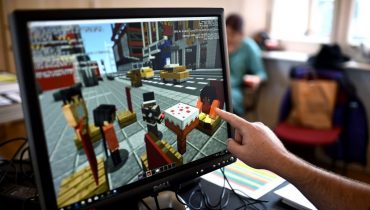What’s the job?
Civil engineer.
Who would I be working for?
Governments, large construction companies or smaller businesses, or you may even set up on your own once you’re experienced enough.
What do they do?
The word ‘civil’ means anything to do with a country and its people, but not including the military. So civil engineers are the people who build roads, railways, bridges, schools, hospitals, factories, power stations, wind farms, water supply systems, sewers and just about anything else that you need to run a country.
What sort of work is involved?
- Speaking to clients to discuss their requirements.
- Doing research and carrying out site surveys to see if a job can be done, what problems there might be, and how you can overcome them.
- Using computer-aided design (CAD) software to create plans for your projects.
- Working out what effects your project might have on the environment.
- Checking each stage of your project as it’s being built to see if everything is going to plan.
- Making sure that health and safety rules on the site are being followed.
Civil engineering is quite a broad category, with many specialised roles. For instance, a structural engineer would have more responsibility for things like:
- Calculating the forces on each part of the structure in various conditions, such as extreme situations like hurricanes or earthquakes.
- Considering which materials would be best to use and how they will cope in the chosen location.
- Studying ground conditions to see if the area is suitable for building, or what can be done to make it safe.
- Examining unsafe or damaged structures to work out how they can be repaired and made safe again.
What skills do I need?
- Excellent knowledge of maths and physics, as well as chemistry or biology for some specialised roles.
- Confidence with IT, as engineers use a wide range of software and technology, which is constantly changing.
- Ability to study a lot of information and data, and make sense of it.
- Excellent communication skills, as you will need to explain complicated information to your co-workers, bosses and clients.
- Ability to cope with all sorts of weather conditions, as site visits could be at any time of the year and in exposed locations.
What qualifications do I need?
You’ll need a degree, foundation degree, diploma or higher certificate in engineering. All universities have different entry requirements, but a rough guide would be good A Levels (or the equivalent) in maths and physics, plus one other subject.
Another popular route into engineering is through an apprenticeship, where you start learning on the job, combined with part-time studies to get your qualifications. The Institution of Civil Engineers has lots of useful info here about the different types of apprenticeships.
Anything else I need?
You’re likely to need a driving licence, as at times you’ll almost certainly be working in places where there aren’t very good transport links. In fact, you may be building the transport links yourself!
What hours would I work?
Most civil engineers will generally be supposed to work standard 35-40 hour weeks, Mon-Fri. However, if you’re working on a site, this may quite often involve longer days.
Where would I work?
Anywhere! You could be putting up a new building in the middle of a huge city, building a wind farm in the middle of a field, or constructing flood defences on the coast. Basically, wherever people need something building, you could be there. That means you may have to spend a lot of time travelling and work away from home for days or even weeks at a time. You could even end up working in disaster zones on the other side of the world, helping to repair damage and rebuild damaged buildings and water/electricity systems.
How much would I get paid?
You could expect a starting salary of around £20-25,000. With more experience and professional qualifications, this could rise over time to something like £80,000, but could vary a lot depending on which area you specialise in or which company you work for.
Can I do work experience?
Yes indeed! Smaller companies may only offer long-term placements to university students, but big engineering companies such as Rolls Royce and Costain take people on from the age of 14. The best thing is to search for any engineering/construction companies nearby and check their website or give them a call, or ask a teacher if your school has any contacts with local companies.
How might the job change in the future?
In more ways than you can imagine! Engineering is all about using the latest and best technology to overcome problems and deliver solutions, so engineers are often at the forefront of new developments. In recent years, drones have been used in the air and below the sea to check structures, and in the future it’s likely that engineers will be using teams of drones or robots to check and even make repairs to buildings, bridges and other structures. It’s also possible that artificial intelligence could come up with designs that humans hadn’t even considered, so you could be using computers to help you make some truly futuristic projects come to life.






